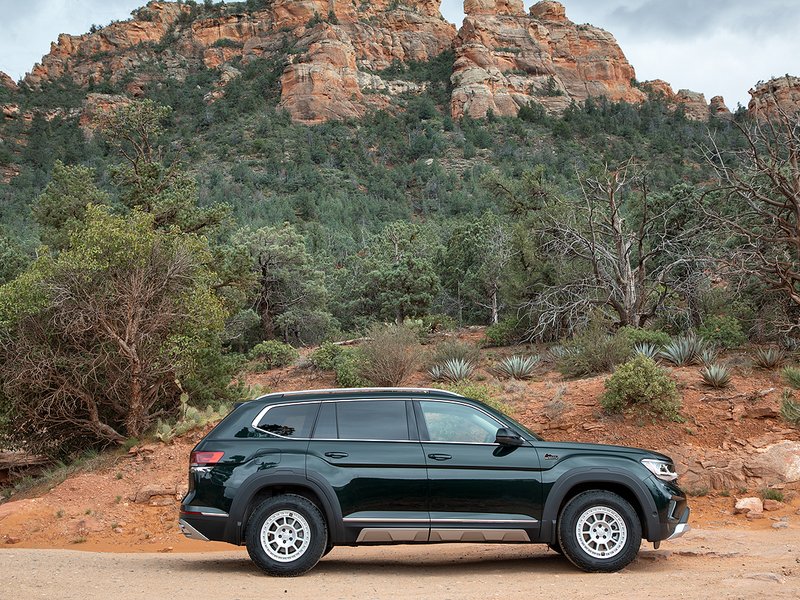
Volkswagen said it will introduce a series of aftermarket accessories at its dealerships to give its refreshed three-row Atlas crossover more of a rugged appearance.
Nearly 400 copies of the refreshed Atlas had been produced and were being shipped to dealers when Volkswagen temporarily halted production at its Chattanooga Assembly plant last month to help fight the spread of COVID-19.
Volkswagen first showed the Atlas refresh at the 2020 Chicago auto show.
The accessories are modeled after the Atlas Basecamp concept, first shown a year ago at the New York auto show. They include a two-tone front bumper guard, textured fender flares with integrated splash guards, side-door rocker panels and an upgraded rear valance with trailer hitch access.
The package also comes with special “Basecamp” badging. Upgraded alloy wheels and off-road tires are also available, the automaker said.
The accessory package, which will be available before summer, is designed to further differentiate the larger Atlas from the newly introduced two-row Atlas Cross Sport. The Atlas Cross Sport is about 5 inches shorter overall than the refreshed three-row Atlas, but the two vehicles are nearly indistinguishable from the B-pillar forward.
“What we’ve also decided to do with the Atlas face-lift is we wanted to give the customer the ability to further customize the vehicle a little bit,” said Hein Schafer, senior vice president of product marketing and strategy at Volkswagen of America. “We figured that maybe we would try to create a cool cosmetic package for the Atlas that actually takes it in the opposite direction and makes it look a little bit more rugged.”
The Basecamp package, sold together, would retail for “about $2,500,” Schafer said, with the optional wheels adding another $1,000.
Like other automakers, Volkswagen is scrambling to reset its product calendar because of the ongoing global effects of the COVID-19 pandemic. The automaker’s European arm has delayed the introduction of the ID3, its first battery-electric vehicle built on the new modular MEB platform, until August. That delay has pushed against the rollout of the ID4 compact crossover, which Volkswagen had planned to bring to the U.S. at the end of this year.
The automaker also is working to launch an as-yet-unnamed subcompact crossover that will be slightly smaller than its Tiguan. That vehicle is likely to be shown for the first time this fall, will be built in Mexico and is scheduled to enter the market in 2021 as a 2022 model.